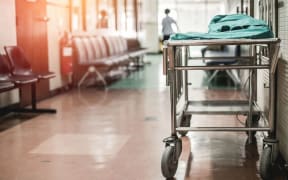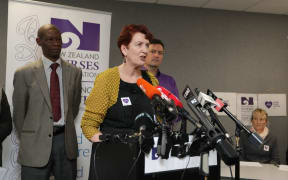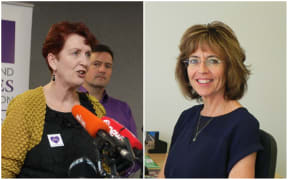Last-ditch talks between nurses and District Health Boards (DHBs) over tomorrow's 24-hour nurses strike ended this morning.
New Zealand Nurses Organisation (NZNO) have confirmed they will go ahead with a planned strike tomorrow from 7am until Friday 7am after rejecting the latest offer by DHBs.
NZNO said negotiations talks with the DHBs would continue, but members would still walk out of the job tomorrow regardless.
At press conference this afternoon, DHB spokesperson Helen Mason said they were still in facilitation with ERA and the nurses union and would consider ERA's final recommendations immediately and seriously once they came out.
"We are currently waiting to recieve the final recommendations from ERA and we are anticipating that we'll be getting those final recommendations shortly," Ms Mason said.
The talks had been an "extremely robust process" which strongly heard concerns of both parties over pay and working conditions, she said.
However, she said DHBs were disappointed that the Nurses Organisation had not waited to consider the final recommendations.
"We're very disappointed to be advised that NZNO is going ahead with the strike... given that we have yet to receive those final recommendations and neither party has had the opportunity to review those recommendations," she said.
The final recommendations would not be binding on either party, she said.
"It's extremely helpful to have a third-party assessing that offer who is listening to the concerns of both parties and whether the offer actually addresses the concerns of both parties.
"We've been working very hard over the last 24 hours to try and find a resolution and DHBs will continue to find, and work very hard to find, a way forward with us," she said.
The unprecendented situation for nurses had led to DHBs working hard to avoid strike action, she said.
"Our reasons for wanting to avoid industrial action is that we take our accountabilities of keeping patients safe very seriously, at the same time we take our accountability for keeping our staff safe as well."
DHBs have been working on plans for the past three months in preparation for the possibility of strikes and the plans intensified over the past month along with negotiations.
She urged the public that anyone requiring urgent medical attention to not hestitate to attend an emergency department or dial 111 or contact local GPs and pharmacists for any medical assistance.
One chief medical officer estimates 6000 to 8000 elective surgery procedures nationwide will need to be deferred as a result of the industrial action.
The latest offer, rejected by nurses, boosted the minimum pay increase nurses would receive from 9 percent to 12.5 percent, but delays the time taken for the pay rises to take effect.
The Nurses Organisation is recommending the improved offer which includes pay increases of 12.5 to 15.9 percent, to be rolled out over 25 months.





